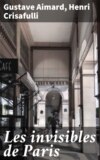Kitabı oku: «The Trapper's Daughter: A Story of the Rocky Mountains», sayfa 9
CHAPTER XVII
MOTHER AND SON
So soon as Father Seraphin had installed Red Cedar and Ellen in the jacal, and assured himself that the new life he had procured them was supportable, he thought about keeping his promise to Valentine's mother.
The worthy female, in spite of all her courage and resignation, felt her strength daily growing less; she said nothing, she did not complain; but the certainty of being so near her son and yet unable to see him, to press him in her arms after such a lengthened separation, such cruel alternations of cheated hopes and frightful deceptions plunged her into a gloomy melancholy from which nothing could draw her; she felt herself dying by inches, and had arrived at the terrible point of believing that she would never see her son again, for he was dead, and that the missionary, through fear of dealing her a terrible blow, deceived her with a hope which could never be realised. Maternal love does not reason.
All that Father Seraphin had told her to cause her to be patient had only lulled her grief for a while, till it broke out again in redoubled impatience and anxiety. All she had seen and heard since her landing in America had only increased her anxiety, by showing her how life in this country often only hangs by a thread. Hence, when the missionary informed her that in a week at the latest she should embrace her son, her joy and anxiety were so great that she almost fainted.
At first, she did not believe in such happiness. Through hoping against hope so long, she had reached such a state of distrust that she supposed that the good priest only told her this to make her patient for a while longer, and that he promised this meeting just as hopeless sick people are promised things which can never be realised.
In the meanwhile, Father Seraphin, though certain that Valentine was at this moment on the prairie, did not know where to lay his hand on him. So soon as he reached the grotto he inhabited provisionally, he sent off the Indians in four different directions to obtain information and bring him positive news of the hunter. Valentine's mother was present when the missionary despatched these couriers; she heard the instructions he gave them, saw them start, and then began counting the minutes till their return, calculating in her mind the time they would employ in finding her son and in returning: the incidents that might delay them; in short, making those countless suppositions to which people give way who are impatiently awaiting anything they eagerly desire.
Two days elapsed, and none of the couriers returned; the poor mother, seated on a rock, with her eyes fixed on the plain, awaited them, motionless and indefatigable. At the close of the third day, she perceived, at a great distance, a black point, rapidly approaching the spot where she was; gradually, it became more distinct, and she recognised a horseman galloping at full speed up the valley.
The mother's heart beat as if ready to burst. It was evidently one of the missionary's messengers; but what news did he bring? At length, the Indian dismounted, and began scaling the hill side; the old woman seemed to regain her youthful limbs, so rapidly did she go to meet him, and cleared in a few minutes the space that separated them. But when they were face to face, another obstacle rose before her: the redskin did not understand a word of French; she, for her part, could not speak Indian. But mothers have a species of language, a freemasonry of the heart, which is understood in all countries; the Comanche warrior stopped before her, folded his arms on his chest, and bowed with a gentle smile, merely uttering the word —
"Koutonepi!"
Valentine's mother knew that the Indians were accustomed to call her son thus; and she suddenly felt reassured by the man's smile, and the way in which he had spoken her son's name. She took the warrior by the arm, and dragged him to the grotto, at the entrance of which Father Seraphin was reading his breviary.
"Well!" he asked on seeing her, "What news?"
"This man could tell me nothing," she replied, "for I do not understand his language; but something assures me he brings good news."
"With your leave, I will question him."
"Do so, for I am anxious to know what I have to expect."
The missionary turned to the Indian, who stood motionless a few yards off, and had listened to the few words spoken.
"The brow of my brother, the Spider, is damp," he said; "let him take a place by my side and rest: he has had a long journey."
The Indian smiled gravely, and bowed respectfully to the missionary.
"The Spider is a chief in his tribe," he said in his guttural and yet melodious voice; "he can bound like the jaguar, and crawl like the serpent: nothing fatigues him."
"I know that my brother is a great warrior," the missionary answered: "his exploits are numerous, and the Apaches fly on seeing him. Has my brother met the young men of his tribe?"
"Spider has met them: they are hunting the buffalo on the Gila."
"Was their great chief Unicorn with them?"
"Unicorn was with his warriors."
"Good! My brother has the eye of a tiger-cat: nothing escapes him. Did he meet the great paleface hunter?"
"Spider smoked the calumet with Koutonepi and several warriors, friends of the pale hunter, assembled round his fire."
"Did my brother speak with Koutonepi?" the priest asked.
"Yes, Koutonepi is glad at the return of the father of prayer, whom he did not hope to see again. When the walkon has sung for the second time, Koutonepi will be near my father with his comrades."
"My brother is a wise and skillful warrior: I thank him for the way in which he has carried out the mission with which he was entrusted, a mission which no other warrior would have performed with so much prudence and tact."
At this well-dressed compliment, a smile of joy and pride played round the Indian's lips, who withdrew after respectfully kissing the missionary's hand. Father Seraphin then turned to Madame Guillois, who anxiously awaited the result of this conversation, trying to read in the priest's looks what she had to hope or fear. He took her hand, pressed it gently, and said to her with that sympathetic accent which he possessed in the highest degree —
"Your son is coming, you will soon see him: he will be here this night, within two hours at the most."
"Oh!" she said with an accent impossible to render; "God! Be blessed!"
And, kneeling on the ground, she burst into tears. The missionary watched her anxiously, ready to help her if her extreme emotion caused her to break down. After a few moments she rose smiling through her tears, and took her place again by the priest's side.
"Oh!" she said eagerly, "he is my son, the only being I ever loved; the child I nursed at my breast, and I am going to see him again! Alas! We have been separated for ten years – for ten years the mark of my kisses has been effaced from his forehead. You cannot understand what I feel, father – it cannot be explained; to a mother her child is everything."
"Do not let your emotion overpower you."
"Then, he is coming?" she repeated eagerly.
"In two hours at the most."
"What a long time two hours are!" she said with a sigh.
"Oh! all human creatures are like that," the missionary exclaimed. "You, who waited so many years without complaining, now find two hours too long."
"But I am waiting for my son, my beloved child; I cannot see him soon enough."
"Come, calm yourself, you are quite in a fever."
"Oh! fear nothing, father, joy never kills. The sight of my son will restore my health, I feel sure."
"Poor mother!" the priest could not refrain from saying.
"Am I not?" she said. "Oh, it is a terrible thing, if you but knew it, to live in these continued horrors, to have only a son who is your joy, your delight, and not to know where he is, or what he is doing, whether he is dead or alive. The most cruel torture for a mother is this continual uncertainty of good and evil, of hope and disappointment. You do not understand this, you can never understand it, you men; it is a sense wanting in you, and which we mothers alone possess – love of our children."
There was a short silence, then she went on:
"Good heaven! How slowly time passes. Will not the sun soon set? Which way do you think my son will come, father? I should like to see him arrive, though I have not seen him for a long time. I feel certain that I shall recognise him at once; a mother is not mistaken, look you, for she does not see her child with her eyes, but feels him in her eyes."
The missionary led her to the entrance of the cave, made her sit down, placed himself by her side, and said, as he stretched out his arm in a southwestern direction:
"Look over there, he must come that way."
"Thanks!" she said, eagerly. "Oh, you are as kind as you are virtuous. You are good as a saint, father. God will reward you, but I can only offer you my thanks."
The missionary smiled softly.
"I am happy," he said, simply.
They looked out, the sun was rapidly sinking in the horizon; gloom gradually covered the ground; objects were confused, and it was impossible to distinguish anything, even at a short distance.
"Let us go in," Father Seraphin said; "the night chill might strike you."
"Nonsense," she said, "I feel nothing."
"Besides," he went on, "the gloom is so dense that you cannot see him."
"That is true," she said, fervently, "but I shall hear him."
There was no reply possible to this. Father Seraphin took his seat again by her side.
"Forgive me, father," she said, "but joy renders me mad."
"You have suffered enough, poor mother," he answered, kindly, "to have the right of enjoying unmingled happiness this day. Do what you please, then, and have no fear of causing me pain."
About an hour elapsed ere another word was uttered by them: they were listening; the night was becoming more gloomy, the desert sounds more imposing, the evening breeze had risen, and groaned hoarsely through the quebradas, with a melancholy and prolonged sound. Suddenly Madame Guillois sprang up with flashing eye, and seized the missionary's hand.
"Here he is," she said, hoarsely.
Father Seraphin raised his head.
"I hear nothing," he replied.
"Ah!" the mother said, with an accent that came from her heart, "I am not mistaken – it is he! Listen, listen again."
Father Seraphin listened with greater attention, and, in fact, a scarcely perceptible sound could be heard on the prairie, resembling the prolonging roaring of distant thunder. The noise became gradually louder, and it was presently easy to distinguish the gallop of several horses coming up at full speed.
"Well," she exclaimed, "was it fancy? Oh! A mother's heart is never mistaken."
"You are right, madam; in a few minutes he will be by your side."
"Yes," she muttered, in a panting voice.
That was all she could say – joy was stifling her.
"In Heaven's name," the missionary exclaimed, in alarm, "take care! This emotion is too great for you; you are killing yourself."
She shook her head with a careless gesture, full of inexpressible happiness.
"What matter?" she said; "I am happy – oh, very happy at this moment."
The horsemen entered the defile, and the gallop of their horses grew very loud.
"Dismount, gentlemen," a powerful voice shouted, "we have arrived."
"'Tis he! 'Tis he!" she said, with a movement as if going to rush forward; "it was he who spoke – I recognised his voice."
The missionary held her in his arms.
"What are you about?" he exclaimed, "you will kill yourself!"
"Pardon me, father, pardon me! But on hearing him speak, I know not what emotion I felt; I was no longer mistress of myself, but rushed forward."
"A little patience, he is coming up; in five minutes he will be in your arms."
She started back hurriedly.
"No," she said, "not so, not so, the recognition would be too hurried; let me enjoy my happiness without losing a morsel. I wish him to find me out as I did him."
And she hurriedly dragged Father Seraphin into the grotto.
"It is Heaven that inspires you," he said; "yes, this recognition would be too abrupt – it would kill you both."
"I was right, father, was I not? Oh, you will see – you will see. Hide me at some spot where I can see and hear everything unnoticed; make haste, here he is."
The cavern, as we have said, was divided into a number of cells, each communicating with the other; Father Seraphin concealed Madame Guillois in one of these, whose walls were formed of stalactites, that had assumed the strangest forms. After hobbling their horse, the hunters climbed the mountain. While coming up, they could be heard talking together; the sound of their voices distinctly reached the inhabitants of the grotto, who listened greedily to the words they uttered.
"That poor Father Seraphin," Valentine said; "I do not know if you are like myself, caballeros, but I am delighted at seeing him again. I feared lest he had left us forever."
"It is a great consolation for me in my grief," said Don Miguel, "to know him so near us; that man is a true apostle."
"What is the matter, Valentine?" General Ibañez suddenly asked; "Why do you stop?"
"I do not know," the latter replied, in a hesitating voice, "something is taking place in me which I cannot explain. When Spider told me today of the father's arrival, I felt a strange contraction of the heart; now it is affecting me again, though I cannot say for what reason."
"My friend, it is the joy you feel at seeing Father Seraphin again, that is all."
The hunter shook his head.
"No," he said, "it is not that, but something else; what I feel is not natural: my chest is oppressed, I am choking, what can be happening?"
His friends anxiously collected round him.
"Let me go on," he said, resolutely; "if I have bad news to hear, it is better to do so at once."
And, in spite of the exhortations of his friends, who were alarmed at seeing him in this state, he began running up the mountain side. He soon reached the platform, when he stopped to take breath.
"Come on!" he said.
He boldly entered the cavern, followed by his friends, but at the moment he went in, he heard his name called; at the sound of this voice the hunter started; he turned pale and trembled, and a cold perspiration covered his face.
"Oh," he murmured, "who calls me thus?"
"Valentine! Valentine!" the soft voice repeated.
The hunter hesitated and bent his body forward, his face assumed an indescribable look of joy and alarm.
"Again! Again!" he said, in an indistinct voice, as he laid his hand on his heart to check its beating.
"Valentine!" the voice repeated. This time Valentine bounded forward like a lion.
"My mother!" he cried; "My mother, here I am!"
"Ah, I felt certain he would recognise me," she exclaimed, as she rushed into his arms.
The hunter pressed her to his bosom with a sort of frenzy; the poor woman lavished her caresses on him, crying and half mad with joy and terror at seeing him in this state. She repeated the experiment she had made. He kissed her face, with her white locks, unable to utter a word. At length a hoarse groan burst from his chest, he breathed faintly, and he melted into tears, saying, in an accent of indescribable tenderness —
"My mother! Oh, my mother!"
These were the only words he could find. Valentine laughed and wept at once; as he sat on a rock, holding his mother on his knees, he embraced her with delirious joy, and was never wearied of kissing her white hair, her pale cheeks, and her eyes, which had shed so many tears.
The spectators of the scene, affected by this true and simple affection, wept silently round the mother and son. Curumilla, crouched in a corner of the cave, was looking fixedly at the hunter, while two tears slowly glided down his bronzed cheeks.
When the first emotion was slightly calmed, Father Seraphin, who had till then kept aloof, not to trouble the glorious outpourings of this interview, stepped forward, and said in a gently imperious voice, as he held up the simple copper crucifix in his right hand:
"My children, let us return thanks to the Saviour for His infinite goodness."
The backwoodsmen knelt down and prayed.
CHAPTER XVIII
THE CONSULTATION
A man must have lived a long time apart from beings he loves, separated from them by immeasurable distances, without hope of ever seeing them again, in order to understand the sweet and yet painful emotions Valentine experienced on seeing his mother again. We, the greater part of whose life has been spent in the deserts of the New World, amid the savage hordes that occupy them, speaking languages having no affinity with our own, forced into habits not at all agreeing with those of our country – we can remember the tender feelings that assailed us whenever a straying traveller uttered in our presence that sacred name of France so dear to our heart.
Exile is worse than death; it is an ever bleeding wound, which time, in lieu of cicatrising, only increases every hour, every minute, and changes at length into such a craving to breathe one's native air, were it only for a day, that exile contracts that terrible and incurable disease to which physicians give the name of nostalgia. The moment comes when a man, remote from his country, feels an invincible desire to see his country again, and hear his language again; neither fortune nor honours can contend against the feeling.
Valentine, during the many years he had spent in traversing the desert, had always had this memory of his country present to his mind. During his conversations with Father Seraphin he had spoken to him of his mother, that good and holy woman whom he never hoped to see again, for he had given up all thoughts of returning home for a long time past. The feverish existence of the desert had so seduced him, that every other consideration yielded to it, especially after the misfortunes of his early youth and the wounds of his only love. When, therefore, he saw himself reunited to his mother, and understood they would never separate again, an immense joy occupied his mind.
The entire night passed away like an hour, in delicious conversation; the hunters collected round the fire, listened to mother and son describing with that accent that comes from the heart the various incidents of their life during the long conversation. A few minutes before sunrise; Valentine insisted on his mother taking rest; he feared lest, at her advanced age, after the piercing emotions of such a day, such a lengthened absence of sleep might injure her health. After various objections, Madame Guillois at length yielded to her son's wishes, and retired to a remote compartment of the grotto.
When Valentine supposed his mother asleep, he made his friends a sign to sit down near him; the latter, suspecting that he had a serious communication to make to them, silently obeyed. Valentine walked up and down the cavern with his hands behind his back and frowning brow.
"Caballeros," he said, in a stern voice, "day is about to break, it is too late for any of us to think about sleep, so be good enough to aid me with your counsels."
"Speak, my friend," Father Seraphin replied, "you know that we are devoted to you."
"I know it, and you more than anyone else, father – hence I shall be forever grateful to you for the immense service you have rendered me. You know I forget nothing, and when the moment arrives, be assured that I shall pay my debt to you."
"Do not speak about that, friend; I knew the intense desire you had to see your mother again, and the anxiety that tortured you on the subject of that cruel separation; I only acted as anyone else would have done in my place, so dismiss the affair, I beg; I desire no other reward than to see you happy.
"I am so, my friend," the hunter exclaimed, with emotion; "I am more so than I can say, but it is that very happiness which terrifies me. My mother is near me, 'tis true, but, alas! You know the life to which a desert existence, made up of fighting and privation, condemns us; at this moment especially, when following out our implacable revenge, ought I to make my mother, a woman of great age and weak health, share the changes and dangers of that life? Can we, without cruelty, compel her to follow us on the trail of the villain we are pursuing? No, not one of you, I feel convinced, would give me that advice; but what is to be done? My mother cannot remain alone in this cavern abandoned, far from all help, and exposed to numberless privations. We know not whither the duty we have sworn to accomplish may drag us tomorrow. On the other hand, will my mother, so happy at our meeting, consent so promptly to even a temporary separation – a separation which circumstances may indefinitely prolong? I therefore beg you all, my only and true friends, to advise me, for I confess that I know not what resolution to form. Speak, my friends, tell me what I should do."
There was a lengthened silence among the hunters. Each understood Valentine's embarrassment, but the remedy was very difficult to find, as all were in their hearts made rest by the thought of pursuing Red Cedar closely, and not giving him respite until he had been punished for all his crimes. As usual under such circumstances, egotism and private interests took the place of friendship. Father Seraphin, the only disinterested person, saw clearly, hence he was the first to speak.
"My friend," he answered, "all you have said is most just; I undertake to make your mother listen to reason; she will understand, I feel assured, how urgent it is for her to return to civilisation, especially at the present period of the year; still, we must spare her feelings, and lead her back quietly to Mexico, without letting her suspect the separation she fears, and you fear too. During the journey hence to the civilised frontier, we will strive to prepare her for it, so that the blow may not be so rude when the moment for parting arrives. That is the only thing, I believe, you can do under the present circumstances. Come reflect; if you have any plan better than mine, I will be the first to submit."
"That advice is really the best that can be given me," Valentine said, warmly; "hence I eagerly adopt it. You will consent then, father, to accompany us to the frontier?"
"Of course, my friend, and further, were it necessary. Hence, do not let that trouble you; all we have now to decide is our road."
"That is true," said Valentine; "but here lies the difficulty. We must lodge my mother at a clearing near enough for me to see her frequently, and yet sufficiently distant from the desert to guard her against any danger."
"I fancy," Don Miguel remarked, "that my hacienda, at the Paso del Norte, will suit admirably; the more so, as it offers your mother all the guarantees of security and comfort you can require for her."
"In truth," Valentine exclaimed, "she would be most comfortable there, and I thank you cordially for your offer. Unfortunately, I cannot accept it."
"Why not?"
"For a reason you will appreciate as well as I do; it is much too far off."
"Do you think so?" Don Miguel asked.
Valentine could not repress a smile at this question.
"My friend," he said quietly to him, "since you have been in the desert, circumstances have forced you to take so many turns and twists, that you have completely lost all idea of distances, and do not suspect, I feel assured, how many miles we are from the Paso."
"I confess I do not," Don Miguel said in surprise. "Still, I fancy we cannot be very far."
"Make a guess."
"Well, one hundred and fifty miles, at the most."
"My poor friend," Valentine remarked, with a shrug of his shoulders, "you are out of your reckoning; we are more than seven hundred miles from the Paso del Norte, which is the extreme limit of the civilised settlements."
"The deuce!" the hacendero exclaimed, "I did not fancy we had gone so far."
"And," Valentine went on, "from that town to your hacienda is a distance of about fifty miles."
"Yes, about that."
"You see, then, that, to my great regret, it is impossible for me to accept your generous offer."
"What is to be done?" General Ibañez asked.
"It is awkward," Valentine replied, "for time presses."
"And your mother cannot possibly remain here; that is quite decided," Don Miguel objected.
Curumilla had hitherto listened to the talk in his usual way, not saying a word. Seeing that the hunters could not agree, he turned to Valentine.
"A friend would speak," he said.
All looked at him, for the hunters knew that Curumilla never spoke save to give advice, which was generally followed. Valentine gave a nod of assent.
"Our ears are open, chief," he said.
Curumilla rose.
"Koutonepi forgets," he quietly remarked.
"What do I forget?" the hunter asked.
"Koutonepi is the brother of Unicorn, the great Comanche Sachem."
Valentine struck his forehead in his delight.
"That is true," he exclaimed; "what was I thinking about? On my honour, chief, you are our Providence: nothing escapes you."
"Is my brother satisfied?" the chief asked joyously.
Valentine pressed his hand warmly.
"Chief," he exclaimed, "you are the best fellow I know; I thank you from my heart: however, we understand each other, I think, and need say nothing about that."
The Araucano Ulmen warmly returned his friend's pressure, and sat down, merely muttering one word, which contained all his impressions —
"Good."
The other persons, however, had not understood this little scene. Although they had been living for a long time in the company of the Aucas, they had not yet grown accustomed to his silence or learned to translate it; they therefore anxiously waited till Valentine gave them the explanation of the few sentences he had exchanged with his friend.
"The chief," Valentine said quickly, "has found at once what we have been racking our brains in vain to discover."
"How so? Explain," Don Miguel asked.
"What, you do not understand?"
"On my honour I do not."
"Yet it is very simple; I have been for a long time an adopted son of the Comanches; I belong to Unicorn's tribe; that chief will not refuse, I feel sure, to shelter my mother at his village. The redskins love me; Unicorn is devoted to me; my mother will be nursed and kindly treated by the Indians, while, on the other hand, it will be easy for me to see her whenever I have a moment to spare."
"Canarios!" General Ibañez exclaimed, "On my honour, chief," he added, as he gaily tapped the Araucanian's shoulder, "I must allow that we are all asses, and that you have more sense in your little finger than we have in our whole body."
This discussion had lasted some time, and the sun had risen for nearly an hour, when it terminated. Madame Guillois, entirely recovered from the emotions of the night, appeared in the grotto and kissed her son. When breakfast was over, the horses were saddled, and they set out.
"Where are you taking me to, my son?" the mother asked the hunter; "you know that henceforth I belong entirely to you, and you alone have the right to watch over me."
"Be at your ease, mother," Valentine answered; "although we are in the desert, I have found you a retreat in which you will not only be protected from every danger, but where it will be possible for me to see you at least once a week."
Valentine, like all men endowed with a firm and resolute character, instead of turning the difficulty, had preferred to attack it in front, persuaded that the harder the blow he dealt was, the shorter time its effect would last, and he should be enabled to lessen its consequences more easily. The old lady stopped her horse instinctively and looked at her son with tear-laden eyes.
"What do you say, Valentine?" she asked in a trembling voice; "Are you going to leave me?"
"You do not quite understand me, mother," he replied; "after so long a separation I could not consent to keep away from you."
"Alas!" she murmured.
"Still, my dear mother," he continued stoically, "you will have to convince yourself of one fact, that desert life is very different from civilised life."
"I know it, already," she said sighing.
"Very good," he continued; "this life has claims which it would take too long to explain to you, and necessitate constant marches and counter marches, going at one moment here, at another there, without apparent reason, living from hand to mouth, and eternally on horseback."
"Come," my boy, "do not make me suffer longer, but tell me at once what you wish to arrive at."
"At this, mother, that this life of unending fatigue and danger may be very agreeable to a young man like myself, endowed with an iron constitution, and long accustomed to its incidents; but that it is materially impossible for you, at your age, weak and sickly as you are: now you are my only comfort and treasure, mother; I have found you again by a miracle, and am determined to keep you as long as possible. For that reason I must not expose you through an improper weakness, to fatigues and privations which would kill you in a week."
"Well, then?" asked the mother timidly, involuntarily conquered by her son's peremptory accent.
"This is what I have resolved," said he insinuatingly, "as I do not wish you to suffer; we must be together as much as we can, if not always."
"Oh, yes," she said; "I only ask to see you ever, my child; what do I care for aught else, provided I am near you, can console you in sorrow, and rejoice in your joy!"
"Mother," the hunter said, "I believe I have arranged matters as well as possible. Father Seraphin will tell you any other plan would be futile."
"Let me hear it," she murmured.
"I am taking you to the village of the Comanches, whose adopted son I am; their chief loves me as a brother; the village is only a few leagues off, and you will be there among friends, who will respect you and pay you the greatest attention."
"But you, my child?"
"I will visit you as often as I can, and, believe me, few days will pass without my seeing you."
"Alas! My poor child, why insist on leading this life of danger and fatigue? If you liked, we could be so happy in a little village at home. Have you forgotten France entirely, Valentine?"










